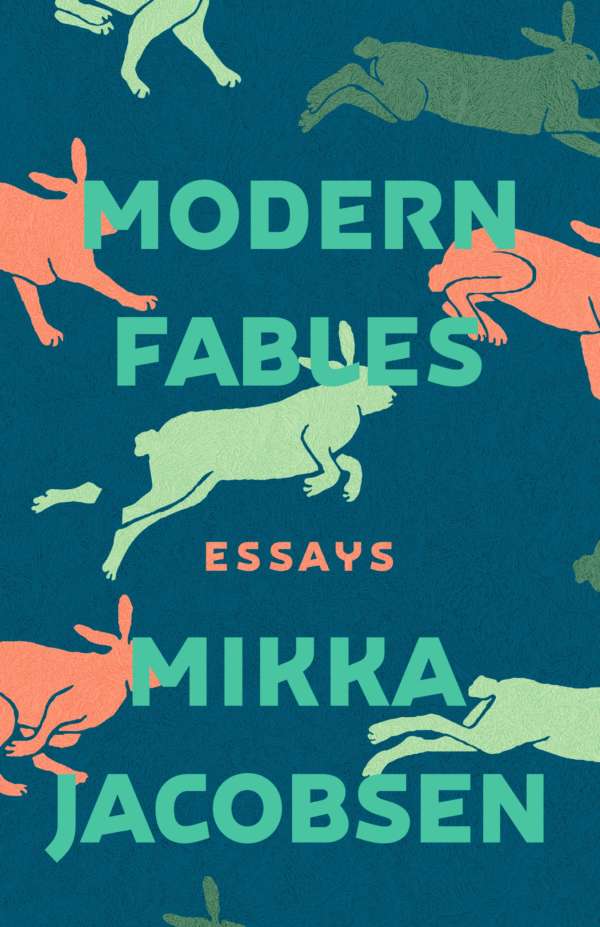Modern Fables
By Mikka Jacobsen
Freehand Books
224 pages, $23
A lie’ is one of three definitions for “fable.” “Fable” can also mean a story that’s intended to convey “a useful truth,” especially if the story involves anthropomorphic animals. Or it can describe a story in which supernatural events occur.
In Mikka Jacobsen’s debut essay collection, Modern Fables, there are no anthropomorphic animals, but the titular essay features a pet cat who seems content to rest among a litter of bunnies until, one day, the family returns to find a mess of bunny carcasses strewn about. Years later, Jacobsen shares this tale with a new boyfriend, who is weaving his own fables. Jacobsen catches him in several lies but quietly rationalizes the inconsistencies. The essay ends with Jacobsen’s declaration that if her mother had let her keep one of the severed rabbit’s feet for good luck, perhaps her life would’ve turned out better—a superstition that could be seen as fable. One person’s lie is another’s useful truth, especially when it comes to finding love.
Exploring topics as wide-ranging as the glut of potential Tinder matches who claim Vonnegut as their favorite writer, to the false dichotomy between high art and domestic craft, Jacobsen brings together seemingly disparate strands of lived experience and cultural critique to question the truths that society—and specifically, young women seeking love and success—has deemed useful. In place of societal truths, she offers her own useful axioms in a voice that’s honest, sharp-witted, and irreverent.
In “Me vs. Brené Brown,” for instance, she critiques Brown’s fortune-making assertion that people don’t want to talk about shame. Jacobsen starts from her own experience of reading Brown. Initially, she too was taken in by Brown’s unequivocal pronouncements about modern life, but as she looks more closely at the prose, she finds that she can’t make heads or tails of Brown’s central theses or her sentences. Instead, she turns to Nathaniel Hawthorne’s The Scarlet Letter, recounting Hester Prynne’s story: “Like a Maury Povich guest, her lover refuses to acknowledge paternity of their daughter, then is poisoned by her husband and dies.” In this essay and others, Jacobsen’s energetic sentences spryly interweave the private and public, the past and present, the literary and profane, to create a wholly absorbing, delightfully surprising picture of what it means to be alive right now.
In this exceptional read, Jacobsen is blazingly honest and incisive as she guides readers through the discontents of modern love, illuminating a thrilling array of public lies, private truths, and vice versa.
—Kate Finegan














